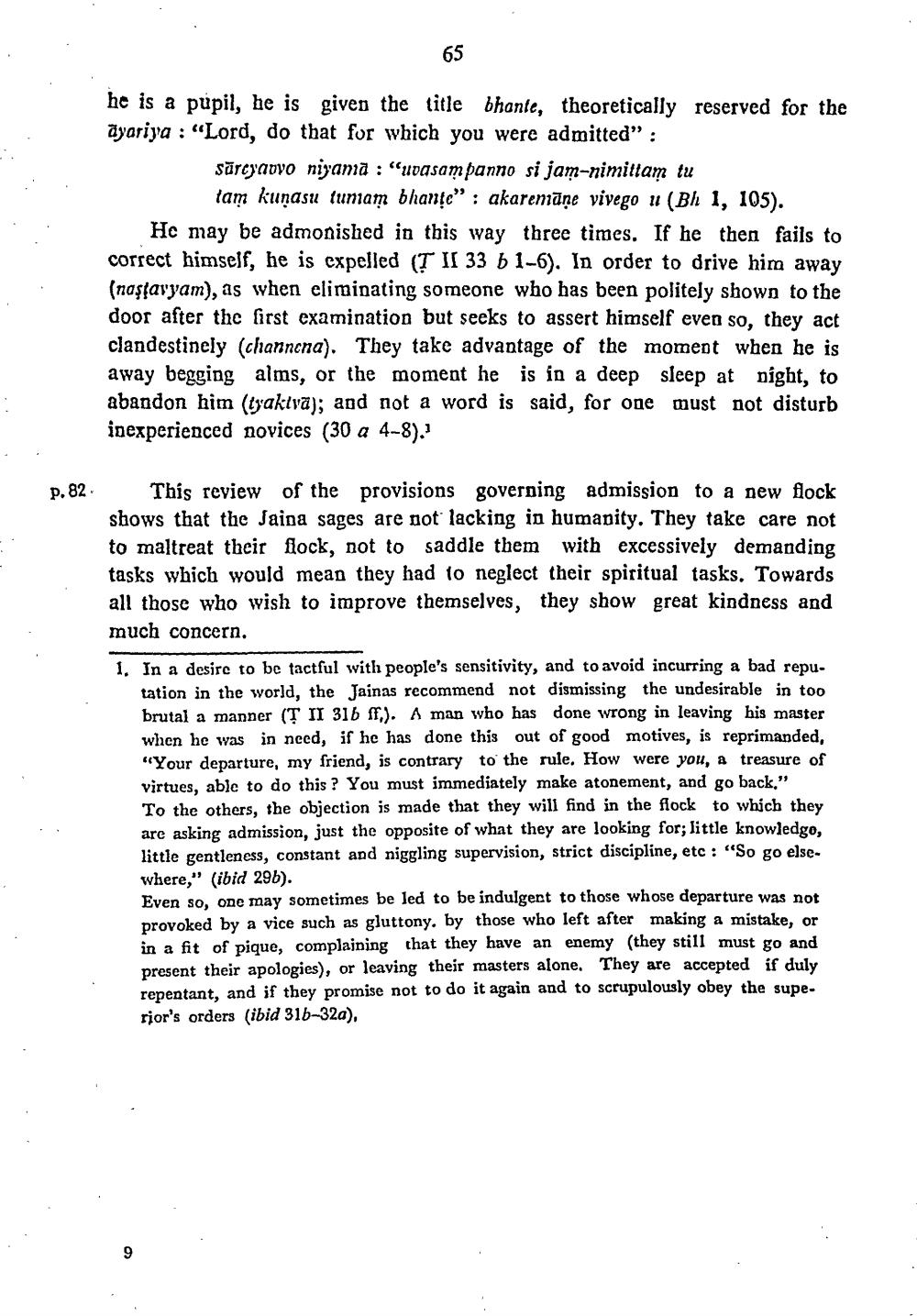________________
p. 82.
65
he is a pupil, he is given the title bhante, theoretically reserved for the ayariya: "Lord, do that for which you were admitted":
sareyavvo niyama: "uvasampanno si jam-nimittam tu
tam kuṇasu tumam bhante": akaremāṇe vivego u (Bh 1, 105).
He may be admonished in this way three times. If he then fails to correct himself, he is expelled (T II 33 b 1-6). In order to drive him away (nastavyam), as when eliminating someone who has been politely shown to the door after the first examination but seeks to assert himself even so, they act clandestinely (channena). They take advantage of the moment when he is away begging alms, or the moment he is in a deep sleep at night, to abandon him (tyaktva); and not a word is said, for one must not disturb inexperienced novices (30 a 4-8).1
This review of the provisions governing admission to a new flock shows that the Jaina sages are not lacking in humanity. They take care not to maltreat their flock, not to saddle them with excessively demanding tasks which would mean they had to neglect their spiritual tasks. Towards all those who wish to improve themselves, they show great kindness and much concern.
1. In a desire to be tactful with people's sensitivity, and to avoid incurring a bad reputation in the world, the Jainas recommend not dismissing the undesirable in too brutal a manner (T II 316 ff). A man who has done wrong in leaving his master when he was in need, if he has done this out of good motives, is reprimanded, "Your departure, my friend, is contrary to the rule. How were you, a treasure of virtues, able to do this? You must immediately make atonement, and go back." To the others, the objection is made that they will find in the flock to which they are asking admission, just the opposite of what they are looking for; little knowledge, little gentleness, constant and niggling supervision, strict discipline, etc: "So go elsewhere," (ibid 29b).
Even so, one may sometimes be led to be indulgent to those whose departure was not provoked by a vice such as gluttony. by those who left after making a mistake, or in a fit of pique, complaining that they have an enemy (they still must go and present their apologies), or leaving their masters alone. They are accepted if duly repentant, and if they promise not to do it again and to scrupulously obey the superior's orders (ibid 31b-32a),
9




